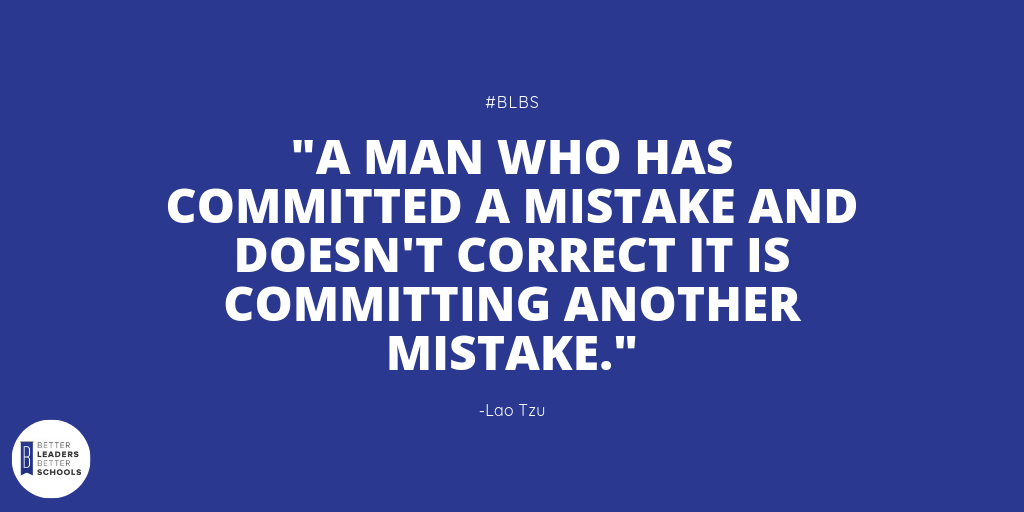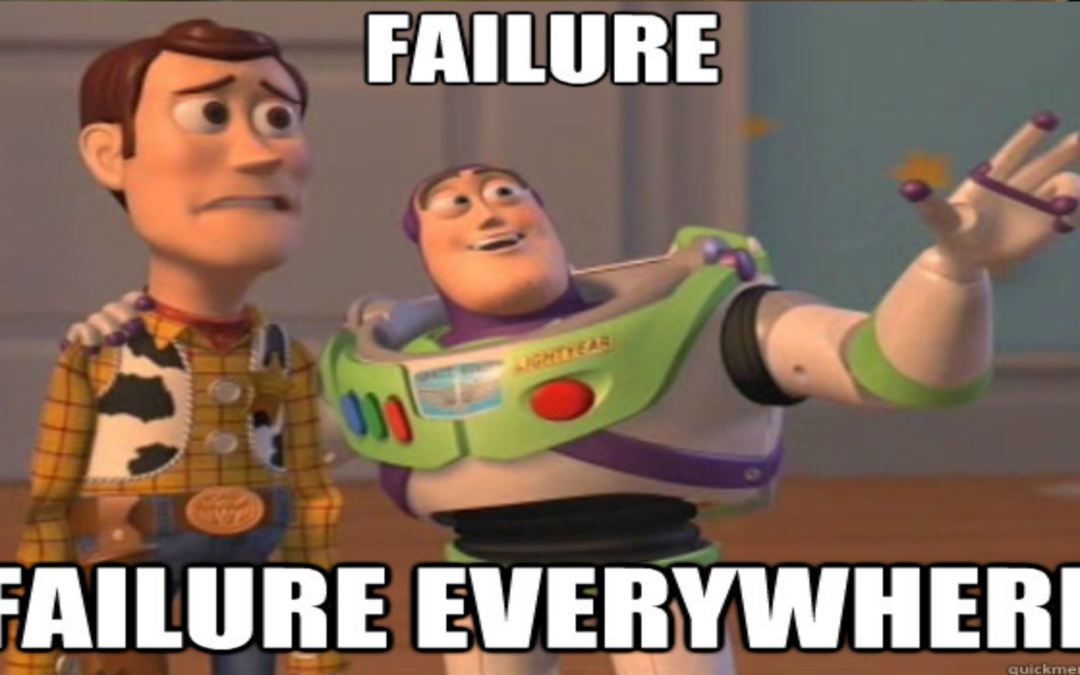Who’s It For?
- Leaders applying to new positions either now or in the near future
- Any leader looking to level up
- Leaders looking for authentic ways to be vulnerable
What it’s for:
- Be a “Purple Cow” — learn how to be different and be legendary.
- Anti-examples are powerful teachers
- Approach leadership in an innovative way
- Connect with your community through vulnerability and empathy
- Grow your emotional intelligence: reflecting on failure is a tool for radical self-awareness
How do you look at challenges?
What is your relationship with failure?
Do you run from it? Learn from it?
“I judge you unfortunate because you have never lived through misfortune. You have passed through life without an opponent — no one can ever know what you are capable of, not even you.”
-Seneca
If I’m honest I don’t like to fail. I’m a recovering perfectionist. I was an “A” student playing school well and pleasing everyone as I went along.
Tough experiences hurt. They can be embarrassing.
But as Seneca noted, they are our best teachers. I had to learn this powerful reframe of failure. I want to know what I am capable of and failure is my best teacher.
Download my “Failure Resume below!
My most spectacular fails and what I learned. I’ll also coach you how to turn your biggest failures into your best wins.
Create Your Anti-Resume
Fill in your info below to unlock the powerful benefits of creating a failure resume:- Stand out among a crowd of applicants
- Increase your emotional intelligence
- Connect with the community you serve

If you are applying for a job anytime in the future you are guaranteed to have an iteration of this question served up to you:
What is your biggest weakness? What has been your biggest mistake?
As a principal I had to hold back the vomit in my throat when someone would reply, “My biggest weakness … is that I care too much.”
This is an easy question to punt. It’s a hard question to take seriously. What do you exactly share?
The fear is that the interview committee will judge you poorly for answering honestly.
This couldn’t be further from the truth.
You see, people crave authenticity. And if an interview committee were too judge you harshly for answering this question candidly, then you don’t want to work in that place anyway.
The question about your biggest failure really is asking you this: Can this person be radically honest? How self-aware are they? How does this leader handle discomfort and challenges?
Nailing this question can set you apart from every other candidate and land you the job.
So if the worst response is “I work too hard.” The second worst response is the one you are fishing for in the moment of the interview.
You know this question is coming so make sure you prepare.
A failure resume will help you prepare, maybe you’ll even get a bit lucky.
“Luck is when preparation meets opportunity.”
-Seneca
Not that you want to list your Top Ten Failures of the past decade, but stick with me here…
What if you handed the interview committee or submitted through the online portal, not just your official resume or CV…
What if you also proudly submitted your anti-resume, a “Failure Resume”?
How many leaders do you know that do that? Is there a chance that this would set you apart from all the other candidates?
If you have the courage to do this I predict one of two things will happen: you will either be cut from the applicant list (that’s the risk) or you will rise to the top spot (that’s the reward).
My most spectacular fails and what I learned.
I’ll also coach you how to turn your biggest failures into your best wins.
Even if you aren’t applying to new jobs I challenge you to create a failure resume.
Here’s why: it will increase your self-awareness and boost your emotional intelligence

The biggest challenge with growing your self-awareness is that humans naturally avoid discomfort. Radical self-reflection is not the norm. It takes a special leader who looks in the mirror and says “Where have I failed today and what did I learn from it?”
The best leaders absolutely do this. Sure it can be done individually, but it is much easier to do with a community of leaders that all have signed up for this kind of growth.
Maybe you’re like Mike:
Mike is a Principal of Average Middle School. He is often obsessed with his “to-do list” he marches through the halls of the school ignoring all the other humans he works with. He doesn’t do that because he sees his faculty as unimportant, he is just absorbed in what he calls “the work.”
As a result, multiple teachers stop by his office later in the day and send him emails asking if they “did something wrong” or if he is “okay.” This always surprises Mike. It’s a repeating record. Because he is so self-absorbed his staff feels like he is cold and distant, that they did something wrong.
Maybe you are like Stacy:
Stacy is a Principal at Average Elementary. She has trouble saying “No” to opportunities and requests for her time and expertise. As a result she is stretched thin. Each day she has happy to survive and can barely catch her breath. Her staff thinks “I would never her want her job” because she models unhealthy boundaries and illustrates a false narrative that a leader has no life.
Because she is always “in the red” Stacy is like a stretched rubber band, ready to snap at the smallest detour in her day. This leads to many avoidable conflicts and relationships that need repairing. It also leads to a relative mediocre job on the many tasks in front of Stacy since she has too many things to focus on at any one time.
Both Mike and Stacy find themselves in “history repeating itself” which lead to failures both massive and small in scope.
Reflecting on these behaviors not only would help boost their self-awareness and emotional intelligence, it would also interrupt these dangerous patterns and teach them how to be a more effective leader.
A Failure Resume will nudge you to lean into failure and learn:
- It’s not so bad
- It won’t ruin you
- And it will make you a stronger and more effective leader
My most spectacular fails and what I learned.
I’ll also coach you how to turn your biggest failures into your best wins.
Brené Brown says, “Who we are is how we lead.”
The keys to leveling up your leadership is lay at the feet of emotional intelligence.
By creating a failure resume you are boosting your self-awareness.
By communicating your resume you are practicing vulnerability. In turn, people will reach out with empathy and feel connected to you.
This will give you greater influence and level up your leadership.
Finally, a failure resume helps you reframe past losses:
Keep Making a Ruckus,
D
PS … if you loved this post I have three challenges for you:
❤️ Share this post across your social media channels. Sharing = caring
? Create your own failure resume and share it with me.
? Subscribe to both of my podcasts:
The Better Leaders Better Schools Podcast on iTunes and Spotify
The School Leadership Series on iTunes and Spotify



